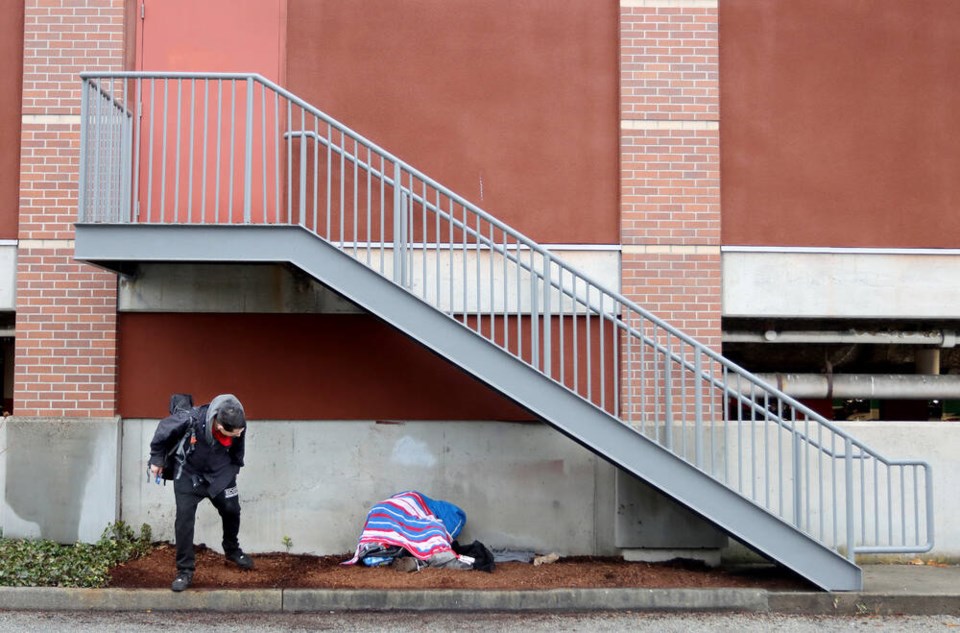Port Moody will reach out to Fraser Health, as well as neighbouring communities, to begin developing a plan for the safe consumption of drugs in the Tri-Cities.
It will also solicit the provincial and federal governments for increased supports for people living with addiction.
The city’s response to the escalating drug crisis is based on compassion and empathy said Mayor Meghan Lahti during Tuesday’s (July 25) council meeting after a motion from Coun. Kyla Knowles was rejected to prohibit the use of certain drugs in parks and playgrounds.
Lahti said while a ban may hide the problem of open drug use in public spaces, it doesn’t solve it, especially if communities don’t have the resources to be able to help people rather than punish them.
“I think we need to send a clear message to our federal and provincial governments that we need the resources so people can actually get help when they need it,” Lahti said.
In introducing her motion, Knowles said a decision by the B.C. government last January to decriminalize the possession and use of small quantities of some illicit drugs for a period of at least three years has downloaded some of the responsibility for the public health emergency declared in 2016 because of a toxic drug supply to municipalities.
“The problem is real,” she said. “The supports are inadequate.”
Still, Knowles said, the city has a responsibility to provide clean, safe recreational spaces to its residents.
But, countered Coun. Amy Lubik, kicking people using drugs from public parks stigmatizes them, pushing the problem even further into the shadows.
“Let’s look at how we can save lives instead of pushing people who use aside,” she said.
Coun. Haven Lurbeicki said cracking down on drug users only “diverts attention away from society’s broader failings.”
She added criminalizing drug use in public parks without providing supports “is the very definition of a harm-based approach” to dealing with crisis.
Keir Macdonald, the co-chair of the Tri-City Homelessness and Housing Task Force, agrees.
In an interview with the Tri-City News, he said people who use drugs are safer when they’re in the company of others, or can be seen by others in case something goes wrong.
“No one wants to see drug use in parks, but you want to advocate to provide solutions so they’re not at greater risk.”
And with only one shelter and no overdose prevention site currently in the Tri-Cities, solutions in the area are inadequate.
Another commenter told council users without any place to go head to parks because that’s where they feel safe.
“This is where they grew up. They loved this community when they were homed.”
In June, Port Coquitlam amended its bylaws to forbid the use of opioids like fentanyl, cocaine, methamphetamine and MDMA in its parks and public spaces.
Other communities that have enacted similar bans, or are considering them, include Kamloops, Kelowna, Penticton, Prince George and Campbell River.
PoCo Mayor Brad West said the limitation makes “common sense,” adding, “You don’t want someone using fentanyl — which can kill a child if they even come in contact with it — in a playground.”
But Coun. Samantha Agtarap said she hasn’t yet seen evidence of rampant drug use in Port Moody’s parks, an observation echoed by Coun. Callan Morrison.
“Until there’s a major need we shouldn’t be implementing (a ban),” he said.
— with a file from Diane Strandberg



